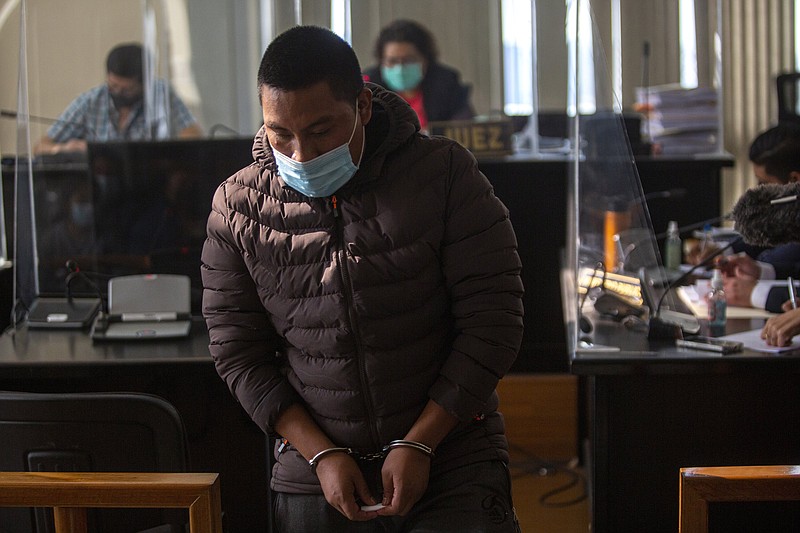GUATEMALA CITY -- To show it's trying to slow the steady flow of its people north to the United States, Guatemala recently tripled prison sentences for migrant smugglers.
While the law change is supposed to dissuade smugglers and cast the government as a willing partner of the U.S. in managing migration, experts and lawmakers say it will only make the trip more expensive. The poverty, violence and other factors pushing Guatemalans to migrate remain strong, and the smuggling networks continue to ply their trade.
Possible prison sentences hold little importance if those responsible rarely make it to trial.
Guatemala's government says it is preparing for further increased migration due to a decision announced Friday by the U.S. Centers for Disease Control to end a system limiting asylum at the southwest border on May 23.
Officials throughout the region expect migrant smugglers to seize on the policy change to drum up more business with misinformation about the sort of reception migrants will meet.
Guatemala's immigration agency said it was forming a multidisciplinary group to respond to changes in migration flows, including securing the country's borders.
In 2020, more than 21,000 Guatemalans were deported home from the U.S., but prosecutors only charged 12 people in connection with migrant smuggling, according to data from the attorney general's office, said lawmaker Andrea Villagran. Only four of the 12 were convicted.
"You have to see the lack of capacity the attorney general's office has to bring these criminal structures to justice," said Villagran, who voted against the change. "The law change is only a show. What this law did was increase the price of smuggling. If the problem isn't really resolved, the people are going to continue wanting to migrate."
Villagran also said there's little motivation for the government to slow migration.
"The interest is in continuing to export Guatemalans so they can continue sending remittances and continue sustaining this country's economy," she said. Last year, despite the global pandemic, Guatemalans sent home $15 billion.
The tougher sentences were proposed by the office of President Alejandro Giammattei. The U.S. government has listed corruption as one of the root causes of immigration in Central America and has accused his administration of undermining Guatemala's justice system while inventing charges to prosecute anti-corruption crusaders.
Ursula Roldan, a migration expert at the Rafael Landivar University, said that while poverty and corruption remain rampant, emigration will continue.
She notes that deportations from the U.S. have fallen even as Guatemalan emigration continues. "It's not that people aren't trying to leave Guatemala. It's that the containment is in Mexico, at the southern and northern borders," she said. "That's where the problem is building."
This year, Guatemalan authorities, under pressure to show they're taking smuggling seriously, arrested 10 people allegedly involved in smuggling the migrants killed last year near the Texas border.
"People keep migrating because the structural causes of migration are still there, they haven't changed," Roldan said.
Stuardo Campos, the prosecutor charged with applying the new law, sees the increased sentences as a positive development and says smuggler arrests are up, but concedes that the factors driving migration are strong and says he lacks the resources to effectively tackle the problem.
Campos noted that the new law requires prosecutors to show proof that moving, housing and helping migrants was done for an economic benefit.
Campos has 340 open investigations into migrant smuggling involving 10 smuggling rings operating across Guatemala.
In the first three months of this year, 7,552 Guatemalans were deported from the United States.

